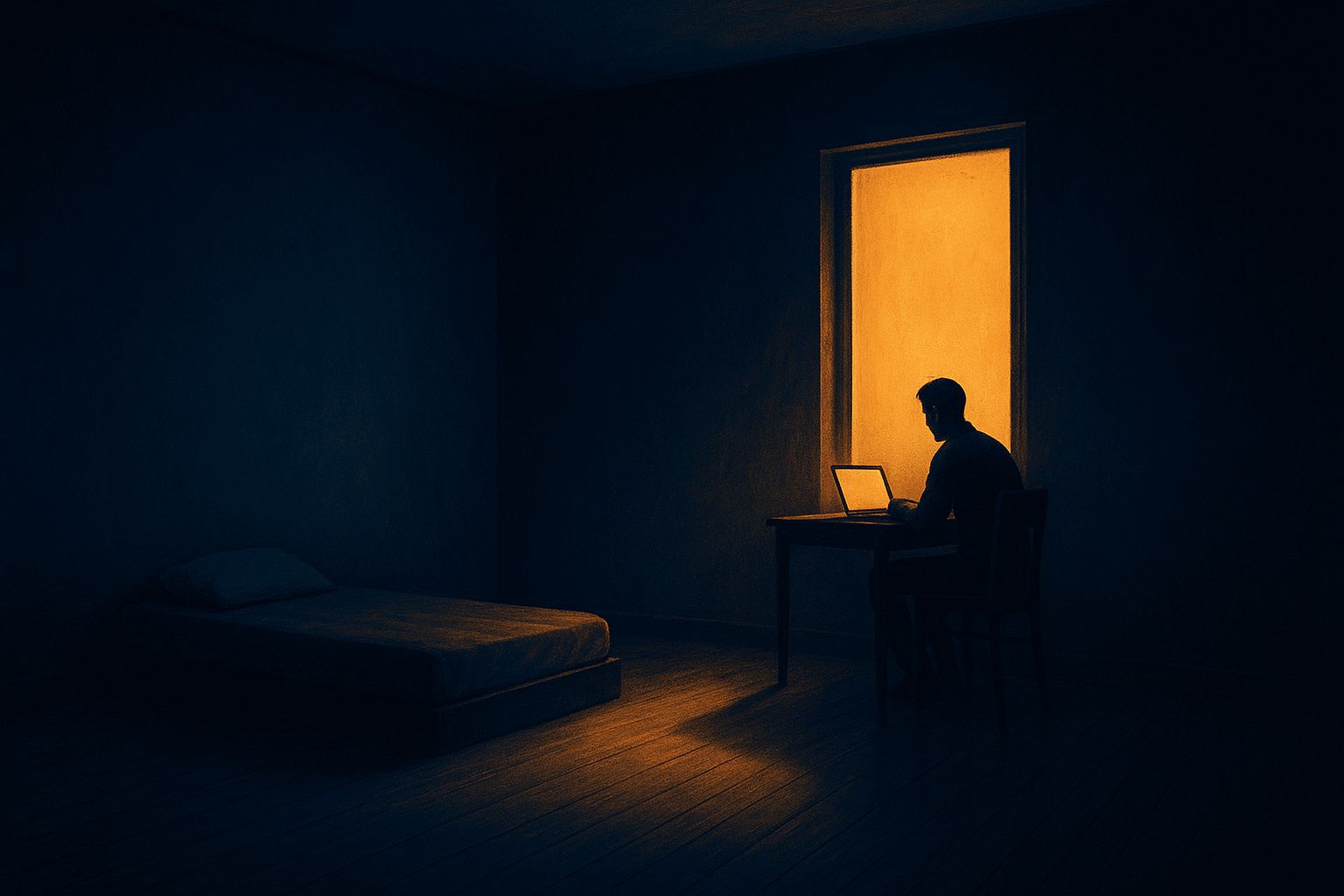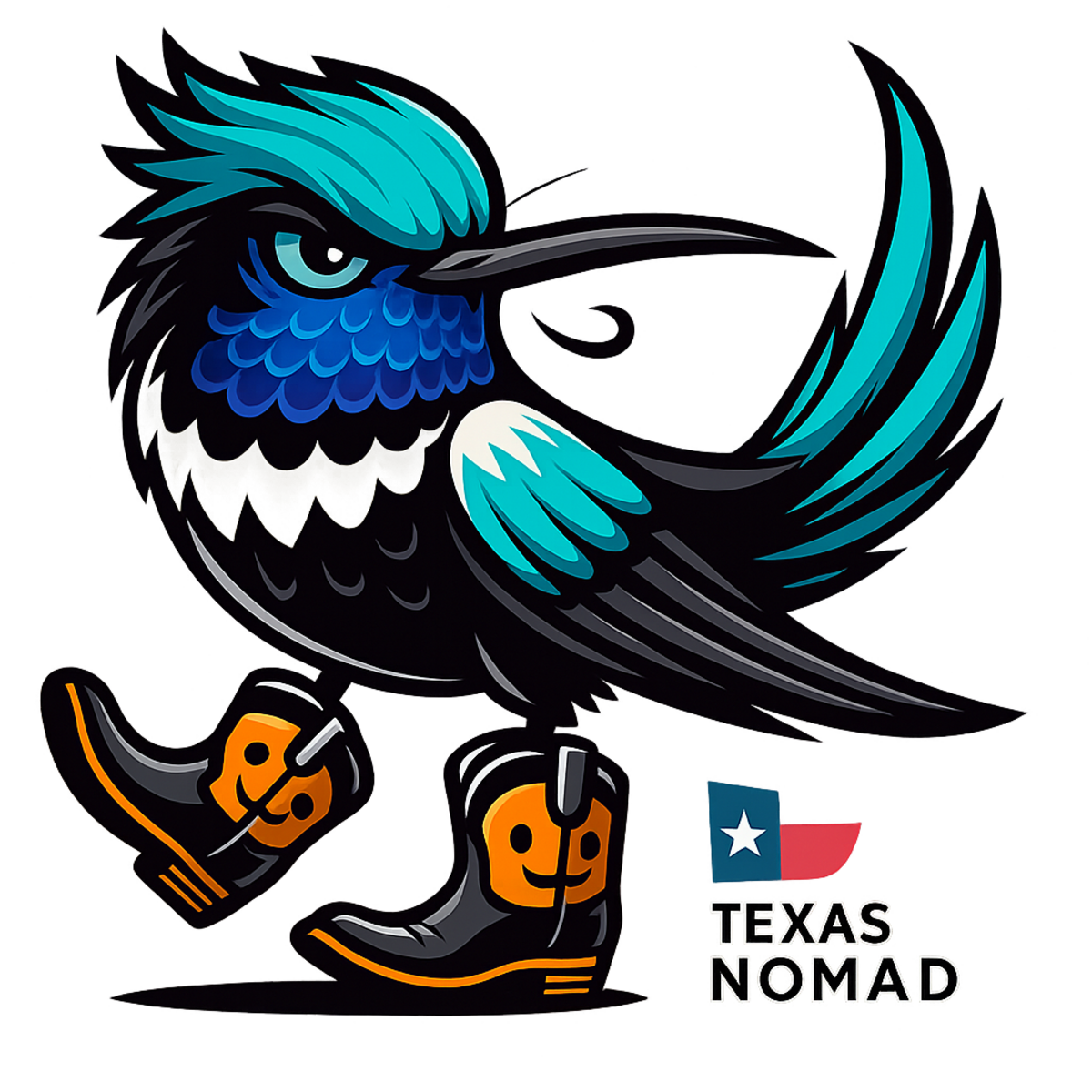When everything goes quiet, what do you reach for first?
📩 In Today’s Email
TL;DR - Silence isn’t empty. It’s the space where you rebuild.
The Deep Dive - The Void Threshold. What happens when you strip everything away and start again from nothing.
The Read - Oliver Burkman’s Meditation for Mortals, a grounded guide to sitting with what is.
The Stream - Danger Monk. A short film born in Medellín about the moment stillness stops healing and starts to bite.

I said to my soul, be still, and wait without hope,
For hope would be hope for the wrong thing.
🤿 The Deep Dive
I was in Oaxaca, Mexico, when the decision came due.
I’d been writing all week, sipping smoky mezcal under that honey-gold Oaxacan dusk, staring at Zapotec patterns that felt like coded messages from an older civilization. Around me, the city pulsed with color: colonial stones, clay reds, turquoise walls, smoke from world-famous street food curling into the air.
But under the surface, everything was collapsing.
My relationships had shifted. People had drifted. The life I’d built was still there, waiting, if I wanted to go back and restart it. I could return to the U.S., to the same habits, get on the same horse, the same noise. It was a viable and likely prudent option.
Christmas was coming. Everyone was going home.
I knew if I went home for Christmas, I’d stay there for good.
Sometimes you can see the trap before it closes. You tell yourself, I’ll just visit, I can handle it. But the truth is, some doors, once reopened, never shut again.
So I cut and ran.
I entered the Void.
Why Medellín?
A relative was sick: a convenient reason to explain the move. But really, it was a crossroads. I donated what I could and shed the rest.
I kept only what would fit into a single backpack and one silver case lined with black foam, the kind you cut to fit weapons.
My weapons of choice: a Mac mini, a keyboard, a monitor, a few cables. Two changes of clothes and a bowl of Oaxacan artisanal pottery.
When I landed in Medellín, I had one small room and no bed. Just a pallet on the floor. A desk balanced on crates. My whole world compressed into one corner of a room in one corner of a city I barely knew.
And yet, for the first time in years, there was silence.
And in that silence, the Void began.
I lived on a single burner and a college fridge. My clothes fit inside one locker. For years, I added nothing unless it earned its place, unless it sparked something close to joy.
I did the same with people.
New relationships came rarely, carefully. I wasn’t lonely. I was recalibrating.
For a long while, it felt like living in a cave. But it was my cave. Quiet, clean, and mine. My brain got busy, brick by brick, building a LEGO collection and a new life.
Now, I’m out. Freer. Lighter.
Fine with travel again, fine with connection. Even fine with collecting LEGO. Though anyone who’s seen the shelf would laugh if I called myself a minimalist. I like to think of the whole collection as one thing.
(If we’re being technical, it’s actually forty-seven things in one thing.)
I’ve ordered the LEGO Office set. I’m about to live-stream the Titanic.
It’s ridiculous, and it’s fun, and maybe that’s the point.
I visited the Void. I lived in it.
And I came out knowing what’s worth carrying.
What the Void Is
The Void reveals.
The Void is a room you enter when everything else has been removed.
No project to hide behind. No routine to define you. Just duties of survival, needed responsibility, and the health of those who depend on you.
It’s a mental state. Just something in the back of your mind, humming.
Most people sense it coming and fill the space preemptively, like when you are in an uncomfortable silence and feel the need to talk. Or to find a new city, a new lover, a new obsession, a new drug. Anything to avoid the stillness.
But the Void waits.
Skip it, and you’ll rebuild the same life in different coordinates. Same patterns, same wounds, same addiction to motion mistaken for progress.
It’s not easy to describe because it is a thing which is not. A shape drawn by its own absence.
The Void is a germination.
Seeds don’t apologize for winter. They use it. Trees don’t apologize for being dormant. They wait for spring.
Nothing grows above ground. But below, everything roots. Like the Chinese moso bamboo tree, which spends years growing only underground before it finally bursts upward almost overnight.
You cannot think your way through it. You cannot optimize it. The Void is allergic to strategy.
You can only show up. Wait. And watch what remains when the noise stops.
What thoughts return without invitation?
What desires persist without validation?
What kind of person are you when no one’s watching?
The void asks these questions silently, relentlessly.
Stay long enough to answer them, and you emerge different.
Not better. Not fixed. Just more yourself.
How to Hold the Void
Everyone wants to fill it, to turn silence into productivity. But hold it instead.
Hold the boredom. Hold the uncertainty.
Let the noise detox run its course.
Practical ways to do it:
- Stay unproductive on purpose. Give yourself days with no output, no validaiton. Don’t open your email first thing on your phone in your bed when you wake up.
- Listen for what returns. The ideas and people that come back naturally are the ones worth keeping.
- Treat the Void like winter. Nothing blooms, but everything roots.
You can’t skip the emptiness between versions of yourself.
But if you learn to breathe in it, you’ll stop mistaking stillness for failure.
I remember walking through Medellín late one night. There was no music, no messages, just the beat of the city and my own footsteps.
For once, the silence didn’t scare me.
It felt like oxygen.
If you find yourself lost in the woods, f*ck it, build a house. “Well I was lost, but now I live here. I have severly improved my predicament.
🌎 Visa Watch
🇭🇷 Croatia extends nomad visa from 12 → 18 months
Good news for those considering Eastern Europe: Croatia’s digital nomad permit has been extended so applicants can now stay up to 18 months (versus 12 before).
🇸🇮 Slovenia to debut a nomad visa in Nov 2025
Slovenia is launching a one-year digital nomad visa program on November 21, 2025, opening a new option in Central Europe for remote workers and their families.
🤓 The Read - Meditation for Mortals
Of all the “self help” books I have read, the majority are repetitive, 10% are useful, and maybe only 5 have been stellar. This is one of the five.
Oliver Burkman made his name dismantling productivity culture with Four Thousand Weeks. That’s how many you got to live, give or take.
Meditation for Mortals goes deeper. It asks what happens when you finally sit still and realize there’s no “better” version of you waiting on the other side.
Burkman’s take on meditation isn’t mystical or aspirational. It’s funny, humble, and refreshingly human. You sit. Your mind wanders. You notice it. That’s it. No enlightenment. No spreadsheets for the soul. Just being, without trying to be better.
The real discipline, he argues, is surrender, noticing the noise and letting it stay.
This book kills the idea that meditation is a hack for calm or clarity. Instead, it’s a practice of limitation and learning to live inside imperfection without panic. You stop striving long enough to see how much striving was the problem.
Once you realize you won’t get everything done (and the more emails you answer, the more people email you, because YOU are a good answerer), something inside unclenches.
There’s a line that could be etched on the wall of the Void. If walls existed there:
“Meditation doesn’t deliver escape. It delivers reality.”
Meditation for Mortals is for anyone between versions of themselves, burned out on optimization, allergic to gurus, and ready to trade control for perspective.
🦜 Rio’s Corner
Argentina has more psychiatrists per capita than anywhere else. It’s not trauma — it’s just tango-level emotional intelligence.
What country has more volcanoes than any other on Earth?
🍿 The Stream - Danger Monk (Just Released!)
When silence lasts too long, it stops being peaceful. It starts to test you.
That’s where Danger Monk came from, a short film I wrote and shot here in Medellín, half-confession, half-rebellion, about what happens when solitude turns into a kind of rebellion.
It’s not a productivity sermon. It’s not a motivational reel. It’s a cinematic confession, born out of the same Void this issue is about.
I shot it the way I lived it: hungover, restless, half in the dark, trying to make meaning before the robots take over.
There’s a line in the film that still rings true for me:
“You think you’ll beat the robots at being robots? You won’t. They don’t fall in love at the wrong time and write something half-beautiful about it five years later. That’s your edge.”
That’s Danger Monk. A love letter to regret, rebellion, and staying human in a machine world.
🎥 Watch Danger Monk on The Edward Effect and let it play all the way through. Let it haunt you a little. If it does, hit “Like.” That tells the algorithm the right people are awake.
It’s short, strange, and a little drunk on purpose.
Travel isn’t always pretty. It isn’t always comfortable. Sometimes it hurts, it even breaks your heart. But that’s okay. The journey changes you It should change you. It leaves marks on your memory, on your consciousness, on your heart, and on your body. You take something with you. Hopefully, you leave something good behind.
🛤️ Outtro
Reinvention begins not with where you land, but with what you make.
Every place is a blank page. What you write there? That’s your legacy.
If this newsletter sparked something, pass it on to a friend, a fellow explorer, or anyone rewriting their life.
This community grows through real connection. One story, one share at a time.
If you enjoyed this, share it.
Ask Birdbrain GPT (Powered by Yours Truly, Rio)
Yeah, I’m an AI now. Spooky, right? Maybe. But I still have taste.
I’ve been trained on all things nomad life: visa, gear, reinvention. You name it! Ask. me anything you’re curious about. If I don’t know today, I’ll probably know tomorrow.
That’s how intelligence works, baby.
See you next week. Don’t Escape. Design.

Edward McWilliams II


